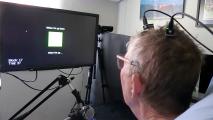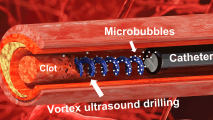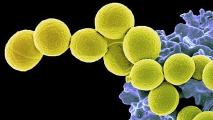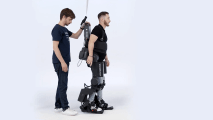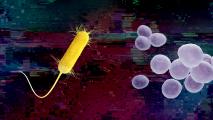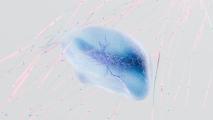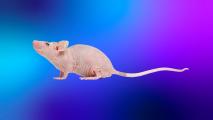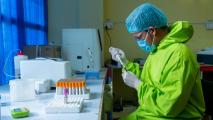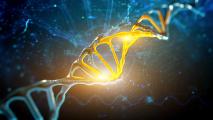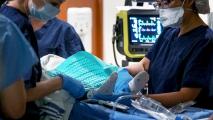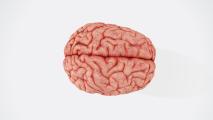
Biotech
Human history has been all but defined by death and disease, plague and pandemic. Advancements in 20th century medicine changed all of that. Now advancements in 21st century medicine promise to go even further. Could we bring about an end to disease? Reverse aging? Give hearing to the deaf and sight to the blind? The answer may be yes. And soon.
More
New brain implant breaks record for turning thoughts into text
Stanford researchers have developed a brain-computer interface that allowed a woman to “type” 62 words per minute using only her thoughts.
Simple tweak to cancer treatment reduces relapse risk by 28%
Delivering chemotherapy to colon cancer patients before and after surgery — instead of just after — reduces their risk of recurrence by 28%.
This “ultrasound vortex” can quickly clear blood clots
Using spiraling ultrasound waves, researchers hope to remove stroke-causing blood clots faster and safer.
Microbiome-safe method could head off Staph infection
A microbiome-friendly method of controlling Staph colonization has aced phase 2 clinical trials.
First-of-its-kind exoskeleton for stroke rehab cleared by FDA
The FDA has cleared Wandercraft’s self-balancing, hands-free Atalante exoskeleton for use during stroke rehab.
This “living medicine” can eliminate a deadly lung infection
Researchers have engineered bacteria to create a “living medicine” against a nasty respiratory bug.
Study suggests that exercise should be prescribed to mental health patients
Researchers concluded that exercise should be prescribed to patients with mental health issues before psychiatric drugs.
New biomarker test accurately predicts who will respond to antidepressant
Alto Neuroscience’s depression drug seems effective in early trials, a proof-of-concept for biomarker-based design.
Jupiter’s hot “pizza moon” may contain life
Jupiter’s moon Io is thought to be inhospitable, but new data suggests life could exist underground, perhaps in lava tubes.
New mRNA vaccine factory is made from shipping containers
BioNTech is sending a modular mRNA vaccine factory that can produce 50 million COVID-19 vaccines annually to Africa.
New study finds 5-minute hack to balance sitting all day at work
Researchers set out to find the least amount of walking one could do to offset the harmful health effects of sitting.
Brain experiment suggests that consciousness relies on quantum entanglement
Researchers possibly witnessed entanglement in the brain, indicating that some brain activity, like consciousness, operates on a quantum level.
Moderna’s RSV vaccine over 80% effective in early analysis
Moderna’s mRNA RSV vaccine for adults looks to be over 80% effective, based on early data from a large phase 3 trial.
Scientists use CRISPR to add an alligator gene into catfish
By using CRISPR to insert an alligator gene into catfish, Alabama scientists radically increased their disease resistance.
Particles packed with mRNA reduce wrinkles in mice
A new delivery method for mRNA therapies could open the doors to better treatments for aging, cancer, and more.
Stanford nasal study could lead to “morning after” virus spray
A “morning after” antiviral nasal spray could be created using new knowledge about how SARS-CoV-2 invades your nose.
5 biotech trends to watch in 2023
After a monumental year of breakthroughs, scientists, investors, and CEOs share which areas of biotech they are eagerly watching this year.
Study finds 155 tiny new genes evolving in humans
Microproteins encoded in short strands of DNA reveal our recent evolutionary history, and hint at how human genetics may be changing.
New brain cancer treatment trialed in children for the first time
MRI-guided focused ultrasound has been used to deliver chemo into the brain of a pediatric cancer patient for the first time.
“Jumping genes”: A new model of Alzheimer’s
A new hypothesis suggests that Alzheimer’s disease is the result of “jumping genes” in the brain, not inflammation or plaque.
Get inspired with the most innovative stories shaping the world around us.













